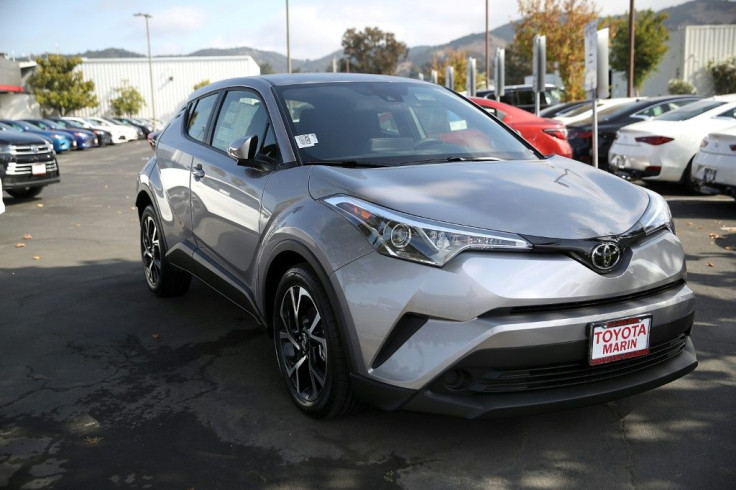Coronavirus Will Sharply Cut Japanese Automakers' Profits

KEY POINTS
- Japanese automakers depend heavily on parts supplied by China
- Hubei province is China’s fourth-largest vehicle manufacturing hub
- In Japan sales of new vehicles plunged by 10.3% in February
The impact of the coronavirus epidemic could reduce the profits of Japan’s top five automakers by $1.6 billion this year.
Goldman Sachs said in a report that total sales for all global automakers are expected to contract by 3.5% in 2020 due to shut down factories and slowing demand.
Japan’s big five automakers -- Toyota Motor Corp. (TM), Nissan Motor Co. (NSANY), Honda Motor Co. (HMC), Mitsubishi Motors Corp. (MMTOF) and Mazda Motor Corp. (MZDAY) – all depend heavily on auto parts supplied by Chinese firms, most of which have been shuttered by the virus.
The epicenter of the virus, Hubei province, is China’s fourth-largest vehicle manufacturing hub.
Even when factories resume production, “it will take some time to return to full capacity owing to labor shortages and the need to secure adequate supplies,” Goldman analysts led by Kota Yuzawa wrote.
On the whole, the five Japanese auto manufacturers will make 580,000 fewer cars from January through April versus Goldman’s prior estimate.
“Even if production resumes along the lines we are assuming, recovery will hinge on end-user demand in China,” Yuzawa wrote. “While these figures tend to be highly volatile, automakers are clearly facing challenges from both a production and sales perspective.”
Nissan has halted production in some of its domestic assembly factories, including Tochigi and Fukuoka, due to a shortage of Chinese-supplied parts. Mazda has been forced to obtain alternative auto parts from Mexico – at a high cost – as Chinese sources have vanished.
In contrast, another Japanese carmaker Suzuki Motor Corp. (SZKMY) has minimal manufacturing presence in China, meaning it will suffer few losses during the crisis.
“If the [virus] situation continues, there could be some impact, but more than 90% of our retail locations across China have reopened,” Toyota spokesman Kensuke Ko said. “But the effect on sales doesn’t just depend on run rates but consumer sentiment and market conditions, so we will continue to monitor the situation, although at this point we have no plans to change our sales targets.”
For all of Japan, sales of new vehicles, including trucks and buses, plunged by 10.3% to 430,185 units in February from a year ago, making it the fifth consecutive month of such declines. New auto sales dropped by 10.7% for the month.
Sales dropped for all eight of Japan’s top automakers.
Mitsubishi Motors recorded a 24.5% plunge in sales, Nissan Motor Co. saw a 13.8% drop., while Toyota suffered a 7% decline in February.
Any slowdown in auto manufacturing will hurt Japan’s overall economy, since this sector accounts for 20% of its total export value.
The Japanese government preliminarily reported that the country’s gross domestic product shrank by 1.6% for the October-December quarter -- or an annualized contraction of 6.3%, the biggest drop-off in more than five years.
Goldman predicted Japanese GDP will contract by 0.3% in the January-March quarter.
Late last month, Japan's economy ministry said it will establish a panel comprising the country's automakers and suppliers to discuss how to minimize the impact of the coronavirus on its auto industry.
© Copyright IBTimes 2025. All rights reserved.




















